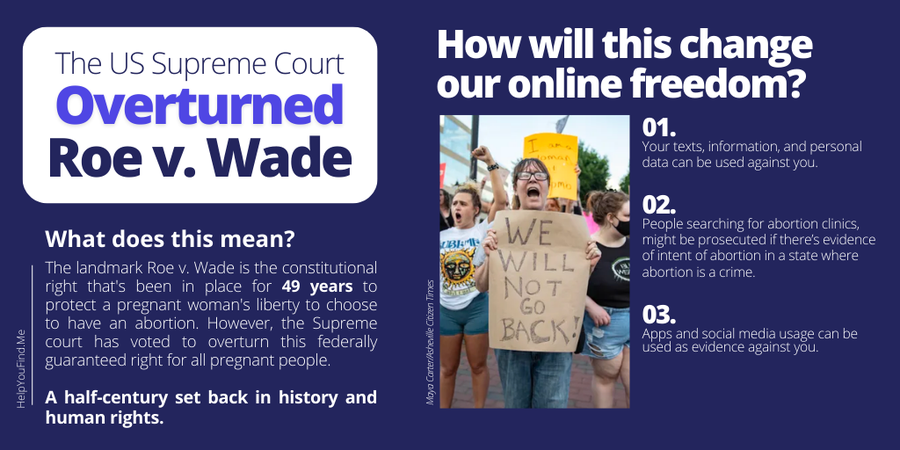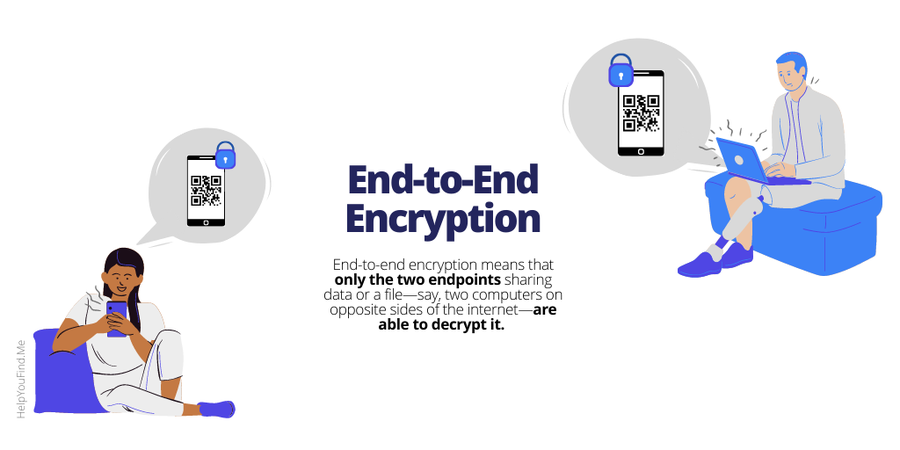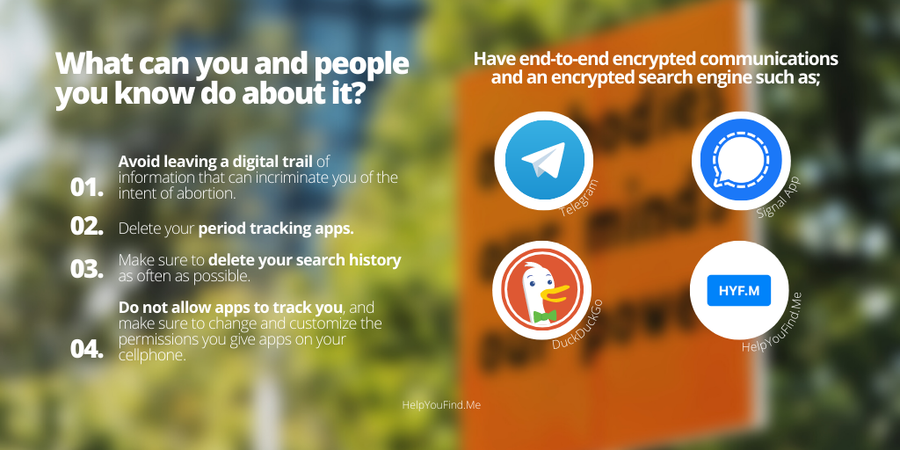The Importance of Data Privacy in the US after Roe vs Wade June 28, 2022
The privacy of Americans’ personal data has been drastically compromised by the US Supreme Court as it overturned the Roe vs Wade decision that federally guaranteed the right to abortion in 1973. How will this change our online freedom? Find out the answers to these questions and more by reading this article on the importance of data privacy after Roe vs Wade.

How can your texts, information, and personal data be used against you in a world after the overturning of Roe vs Wade? #
As scary and deeply disturbing as it may seem, being prosecuted and charged by authorities based on your search history, your unencrypted texts, and other forms of digital communication showing the intent of abortion is entirely possible.
People looking for abortion clinics, and other methods of abortion might be prosecuted if there’s evidence of intent of abortion in a state where abortion is a crime. Even if you're not the person looking for an abortion but rather helping them as a parent, friend, counselor, nurse, doctor, clinic staff or literally anyone, you may also face grave risks to your safety and integrity.
Abortion clinics try to protect their patient's data by using different forms of communication and data entry, such as encrypted services like Zoom or phone calls, and even paper that can be physically destructed instead of digital files that can leave a trail.
Not even a year ago, the period tracking app Flo had a major violation of users privacy that left hundreds of thousands of users’ information and privacy vulnerable and used for any purposes by companies and authorities alike.
For millions of women, Flo Health’s Flo Period & Ovulation Tracker was supposed to be an intimate tool for learning more about their bodies and their health. But the company’s use of sensitive fertility data violated users’ privacy, according to the FTC. This is just one example of how apps do things they’re not supposed to with your data.
Read the full article on our blog: https://helpyoufind.me/blog/6-basic-personal-safety-tips-for-women/
In a world after the overturning of Roe vs Wade, even the possibility of personal information that can lead authorities to believe there was an abortion is a huge threat.
By now, you can already picture why it’s so important to make sure your private data and communications are protected, and by protected we mean end-to-end encrypted, in order to ensure that if your conversations or data end up in the hands of the wrong people, there is no chance of them unencrypting it and being able to access it.
What is end-to-end encryption? #
Briefly, it means that only the two endpoints sharing data or a file—say, two computers on opposite sides of the internet—are able to decrypt it. Even if the data were being stored and served from a service provider (ie, HelpYouFind.Me), as far as the service provider is concerned, that data is just an indecipherable blob of random garbage: the data only becomes a text message, a video, a photo, or whatever it is, when it is paired with a key that's possessed only by you and by those with whom you choose to share it.
Read more: https://helpyoufind.me/how-it-works/

According to Cynthia Conti-Cook, tech fellow at the Ford Foundation and author of the study: “Surveilling the digital abortion diary”.
Research shows that when they do prosecute somebody for criminal behavior related to abortion, the evidence used by the prosecution can be search histories, text messages, and emails.
So, what can you and people you know do about it? #
There are a few ways you can get yourself around with this even if its seems kind of impossible, and although we know there's no such thing as a one-size-fits-all solution, you can follow and take some of our recommendations into consideration for your digital and personal safety.
Avoid leaving a digital trail of information that can incriminate you of the intent of abortion.
These are some resources you can use to have end-to-end encrypted communications and an encrypted search engine:
- Telegram: Encrypted Instant Messaging App (Secret Chats are end-to-end encrypted).
- Duck Duck Go: Encrypted Search Engine.
- Signal: Encrypted Instant Messaging App.
- HelpYouFind.Me: Encrypted Personal Safety Network.

Other steps we recommend for your safety:
- Use different search engines like DuckDuckGo (mentioned above), Firefox and Brave with privacy settings setted up, to protect yourself from a clean search history used against you.
- That being said, make sure to delete your search history as often as possible.
- Delete your period tracking apps.
- Use/download a trustworthy VPN service, which helps you to "digitally locate" yourself somewhere else.
- Do not allow apps to track you, and make sure to change and customize the permissions you give apps on your cellphone.
- Turn off location services for apps on your phone that actually don't need them, or that you're not recurrently using.
- Disable ad identifier on your phone and/or tablet to avoid third-party tracking. Learn more about it here.
There are so many ways your data can be used against you, and also many ways you can help protect yourself against this. Safety tools, techniques and strategies like those mentioned before can help you keep yourself and your personal data stay safe, avoid surveillance, and come in handy when emergency situations arise.
At HelpYouFind.Me, we are appalled by the decision of the Supreme Court and strive to support communities by continuing in our fight for data privacy, by providing a safe, end-to-end encrypted platform that can be used to share and store life-saving information with trusted contacts.

Ana

